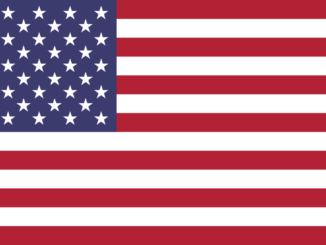 Why have the Palestinian Youth Movement (PYM) and American-Arab Anti-Discrimination Committee (ADC) urged PayPal to cancel its planned project with the Anti-Defamation League (ADL) to investigate and close accounts the ADL considers too extreme?
Why have the Palestinian Youth Movement (PYM) and American-Arab Anti-Discrimination Committee (ADC) urged PayPal to cancel its planned project with the Anti-Defamation League (ADL) to investigate and close accounts the ADL considers too extreme?
At first blush, the PayPal project may sound like a promising step in the fight against financing terrorism. After all, should the public not expect that the pursuit of “extremism” will be evenhanded? And might it not be a good thing to expose extremist financing?
PayPal may indeed have a problem when it comes to funding extremist organizations. Take the case of the Council on American-Islamic Relations (CAIR). Although it poses as a civil rights advocacy group, CAIR acts to promote the ideology of Islamist supremacy and to silence critics of Islamism. CAIR was founded with the assistance of a $5,000 donation from the Holy Land Foundation, itself a front group that funneled more than $12 million to the Hamas terror organization. It was an unindicted co-conspirator in the Holy Land Foundation terror financing prosecution.
Although CAIR’s terror ties are a matter of public record, PayPal’s charitable arm allows CAIR to fundraise on its website via a pass-through donation scheme. The PayPal Charitable Giving Fund’s 990 tax returns for the most recent years available (2019 — here and here, 2018, 2017, and 2016) all reported donations to CAIR chapters. By contrast, the ADL, to its credit, has cataloged CAIR’s terror ties and anti-Semitism in its highly critical profile of the organization.
Nevertheless, the current climate of active censorship by internet behemoths like Twitter, Facebook, and Google strongly suggests that — in the guise of fighting extremism — the PayPal-ADL partnership will focus on penalizing opposing political viewpoints, rather than on hamstringing financial support for actual terrorists.
That’s a problem because the ADL’s current political viewpoint is anything but evenhanded. The watchdog group has a storied history of combating anti-Semitism. Unfortunately, since Jonathan Greenblatt left the Obama White House to take over the organization in 2015, the ADL has become less a foe of anti-Semitism and more a left-wing political advocacy group indistinguishable from the Democratic Party. Rather than focusing its primary efforts on opposing anti-Semitism, Greenblatt’s ADL has instead focused obsessively on the political right — both extremists and those merely espousing right-of-center political ideas — while all but ignoring anti-Semitism from the left and from Islamists (think of Louis Farrakhan and Linda Sarsour, among others). The change has been so pronounced that longtime ADL director Abraham Foxman, whom Greenblatt succeeded, publicly rebuked Greenblatt’s effort to paint Donald Trump as a new Hitler. Greenblatt’s recent epiphany that the left has a problem with anti-Semitism is a hopeful sign, as are a few statements earlier this week. Whether they foreshadow a substantive change in policy remains to be seen, and many critics remain skeptical.
Which raises some questions: What are the PYM and ADC worried about? Are they simply unaware that the ADL has been largely blind to left-wing and even Islamist radicalism? Are they intimidated by the ADL’s somewhat atypical criticism of CAIR? Are the PYM and ADC so dependent on hardcore terrorists that they fear their own funding will not bear scrutiny? Perhaps all of the above: They know the ADL generally craves approval from Muslim and left-wing advocacy organizations and believe they can compel it to back off of any serious funding investigation by preemptively accusing it of discrimination.
Update (September 11, 2021):
On September 4, 2021, CNN published an op-ed by ADL CEO Jonathan Greenblatt apologizing for the organization’s prior opposition to building a Muslim center near Ground Zero. At the time, the ADL was led by Greenblatt’s predecessor, Abraham Foxman — who has himself criticized Greenblatt for exploiting the Holocaust by painting Donald Trump as a new Hitler. Greenblatt tries to analogize the Ground Zero mosque controversy to contemporary criticism of the Biden administration’s Afghan refugee policy. In other words, Greenblatt is once again overtly inserting the ADL into political controversy, this time by trying to divert attention from the administration’s disastrous withdrawal from Afghanistan and convert it instead into an excuse to bash the political right.
But Greenblatt may have an additional motive here. A few weeks ago, PayPal announced plans to partner with the ADL “to fight extremism and hate through the financial industry and across at-risk communities.” As this blog noted at the time, recent actions by internet giants and the ADL’s leftist politicization under Greenblatt suggest the partnership will aim to suppress opposing political views, rather than targeting criminal behavior or even ideologically extreme speech.
Nevertheless, the Palestinian Youth Movement (PYM) and American-Arab Anti-Discrimination Committee (ADC) took PayPal’s announcement seriously enough to condemn the planned project. Is Greenblatt’s mea culpa a signal to the PYM and ADC not to worry, that the ADL doesn’t consider Islamists to be extremist or hateful, and certainly won’t target them in the coming financial crackdown?


